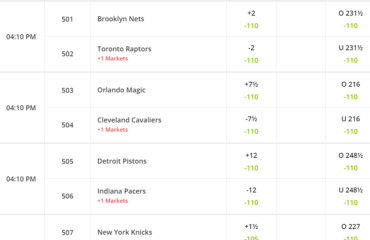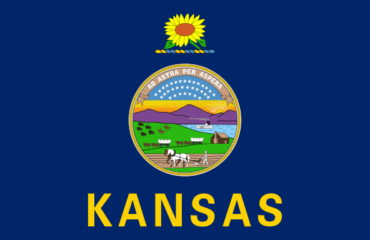It is no secret that legal online poker has struggled in its more than 10 years of existence. It is legal in eight states. However, it is only live in Michigan, Nevada, New Jersey, and Pennsylvania. It is legal in Connecticut, Delaware, Rhode Island, and West Virginia. However, no sites operate in those four states.
There are three online betting companies in Connecticut. Those are DraftKings, FanDuel, and Fanatics. None have an online poker platform. Delaware had online poker for 10 years. However, 888 was replaced by BetRivers, which owns Run It Once poker software but has never launched it. That killed Delaware online poker. Rhode Island requires live dealers for poker. That makes it effectively impossible. West Virginia is too small to support intrastate online poker. Operators may now enter interstate pools, which could occur later in 2024.
The four states with legal poker sites have various problems. Nevada was the first online poker state. Two of its three poker sites failed. WSOP is the last one standing. It uses software that is 15 years old. WSOP’s player support and management are some of the worst in the online poker industry’s 26-year history. It networks players in Nevada and New Jersey. Its Michigan and Pennsylvania sites are intrastate.
PokerStars operates in Michigan, New Jersey, and Pennsylvania. Its Michigan and New Jersey sites are interstate. BetMGM has poker sites in the same three states. However, BetMGM has yet to connect any of its poker sites. All are intrastate.
Potential 2024 Online Poker Moves
One of the problems facing online poker that is an easy fix is that Pennsylvania has yet to enter the Multi-State Internet Gaming Agreement (MSIGA). This allows states to enter interstate online poker pools. A Pennsylvania bill hopes to change that.
West Virginia entered the MSIGA in 2023. It seems like 2024 will be the year online poker hits the state. It was too small to support intrastate sites.
Nevada has been under an online poker monopoly for eight years. It never had serious competition, which affects the WSOP product. There is reason to believe that 2024 is the year BetMGM starts offering interstate online poker, which would likely include Nevada, where it is already licensed. That would bring players like this author on the sidelines due to a widespread dislike of WSOP.
What Online Poker Proponents Should Do in Other States
Online poker is tied to online casino legalization in every state except Nevada. That has held back legal poker sites. In the early days of legal online poker, I noted to several industry people that this seemed like a poor way to open markets. Online casinos are controversial. Online poker is not in the same category.
At the time, horseracing was the only form of legal online gambling in most states. Poker feels more like horseracing to me. The house has no interest in the outcome of a horse race. It holds part of the prize pool while administering the gambling product. That is almost exactly how a poker tournament works. Cash games are not far off from that description.
This is substantially different from online casinos. The house takes all the action on those types of games. It has an interest in the outcome of every online blackjack hand or slot spin. Players compete against the house at a disadvantage, often a massive one when playing games like slots and keno.
Sports Betting Was a Lost Opportunity
Online sports betting is legal in over 30 states today. Online poker, which had a five-year head start on mobile sports betting, was not a part of most legislative discussions. Sports betting raced through more than a dozen state legislatures within a year of the Supreme Court overturning the Professional and Amateur Sports Protection Act.
There is a reasonable argument that online poker is not far off from sports betting. It may even be less predatory. Poker players compete for a pool of chips in every cash game pot or tournament. Sports bettors play against the house. That did not help online poker’s cause.
I joked with several people in the industry that sports betting had better lobbyists than poker. Considering online sportsbooks are legal in four times the states that poker sites are, and live in about eight times more, it is hard to see it any other way.
Underperformance is part of the problem
One of the biggest problems with lobbying for online poker is the lack of revenue it generates in the existing states. Nevada does not report online poker revenue because that requires three operators. It is hard to imagine WSOP generates more than a few hundred thousand dollars a month in rake most months. In the summer during the World Series of Poker, it may break $1 million.
Things are better in New Jersey. Online poker rakes between $2 million and $2.5 million per month, according to the New Jersey Division of Gaming Enforcement. Pennsylvania reports poker revenue a bit higher than that. Both are only two or three percent of total online casino revenues.
Part of this problem is the lack of interstate online poker. These sites need a large reach to fill seats. The more liquidity a poker site has, the more attractive it is to new players. Nobody wants to play at a poker site with only a handful of tables. This makes the situation difficult to fix. Poker lobbyists cannot demonstrate that the online version of the game will generate enough revenue to make it worth it to states because there are not enough other states in the pools.
Another problem is the disastrous Nevada online poker situation. A 2023 attempt to fix security issues at WSOP failed to pass out of committee. Caesars and 888 don’t seem to care about the product. When Nevada, the state where online poker began, has a problematic poker site and was unable to keep two competitors in business, it gets noticed by others.
Since online poker got left behind, that has helped keep offshore sites alive. Regulation was supposed to be the answer to this. Anyone who points to the offshore market as a problem, yet won’t do anything to fix the poker situation, is being disingenuous. It’s time to put poker in the same category as similar games where the house has little or no interest in the outcome.




